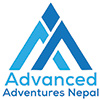Bhutan FAQ's

Here are the most frequently asked questions (FAQs) about traveling to Bhutan, covering permits, costs, culture, trekking, and more:
1. Do I need a visa to visit Bhutan?
Yes, all foreign nationals (except Indian, Bangladeshi, and Maldivian passport holders) require a Bhutan visa. However, you cannot apply directly—visas are processed by licensed Bhutanese tour operators as part of a pre-paid package.
2. Is Bhutan expensive to visit?
Bhutan has a "High Value, Low Impact" tourism policy, requiring a minimum daily tariff:
• 250 to 350 per person per night (varies by season) for most tourists.
• Includes accommodation, meals, guide, transport, and sustainable tourism fees.
• Discounts apply for longer stays and groups.
3. Can I travel independently in Bhutan?
No, independent travel is not allowed. You must book through a licensed Bhutanese tour operator and be accompanied by a guide at all times.
4. What is the best time to visit Bhutan?
• Spring (March–May): Ideal for trekking and festivals (e.g., Paro Tshechu).
• Autumn (September–November): Clear skies, best for Himalayan views.
• Winter (December–February) is colder but great for cultural tours.
5. How do I get to Bhutan?
• By air: Fly into Paro International Airport (the only international airport) via Druk Air or Bhutan Airlines from Delhi, Kathmandu, Bangkok, or Singapore.
• By land: Enter via Phuentsholing (from India) with prior permits.
6. What are the must-visit places in Bhutan?
• Paro: Tiger’s Nest Monastery (Taktsang), Rinpung Dzong.
• Thimphu: Buddha Dordenma, Tashichho Dzong.
• Punakha: Punakha Dzong, Chimi Lhakhang.
• Bumthang: Sacred temples and valleys.
• Gangtey Valley: For black-necked cranes (winter).
7. Do I need permits to travel within Bhutan?
• Indian, Bangladeshi, and Maldivian nationals: Need a permit (can be obtained online or at entry points).
• Other nationalities: Your tour operator arranges all permits (including for restricted areas like Dochula, Bumthang, or Haa Valley).
8. Is altitude sickness a concern in Bhutan?
• Most tourist areas (e.g., Paro, Thimphu) are at 2,000–3,000m, so altitude sickness is rare.
• Trekking routes (e.g., Snowman Trek) reach higher altitudes—acclimatize properly.
9. What currency is used in Bhutan?
The Bhutanese Ngultrum (BTN), pegged to the Indian Rupee (INR). Indian Rupees are widely accepted (except ₹500/₹2000 notes). ATMs are available in cities, but cash is preferred in rural areas.
10. What is the food like in Bhutan?
• Staple dish: Ema Datshi (chili and cheese stew).
• Other favourites: Momos, Phaksha Paa (pork with chili), Red Rice.
• Vegetarian options are available but limited.
11. Is Bhutan safe for travellers?
Bhutan is extremely safe with low crime rates. However:
• Respect local customs (e.g., no smoking in public).
• Avoid political discussions about the monarchy.
12. What should I pack for Bhutan?
• Layered clothing (temperatures vary).
• Comfortable hiking shoes (many monasteries require walking).
• Sunscreen & sunglasses (strong UV at high altitudes).
• Power adapter (Type D, F, or G sockets).
13. Can I use my phone/internet in Bhutan?
• SIM cards (Bhutan Telecom or TashiCell) are available for tourists.
• Wi-Fi is available in hotels but may be slow in remote areas.
14. Are there any cultural etiquette rules?
• Dress modestly (cover shoulders/knees in temples).
• Remove shoes before entering religious sites.
• Avoid public displays of affection.
• Do not point at sacred objects.
15. Can I trek in Bhutan?
Yes! Popular treks include:
• Druk Path Trek (4–6 days).
• Jomolhari Trek (7–10 days).
• Snowman Trek (25+ days, for experienced trekkers).
All treks require a guide and permits.
16. What festivals should I attend?
• Paro Tshechu (March/April) – Masked dances.
• Thimphu Tshechu (September/October) – Biggest festival.
• Punakha Drubchen (February) – Historical re-enactments.
17. Is photography allowed?
Yes, but avoid photographing inside temples or of people without permission. Drones require special permits.
18. How’s the transportation in Bhutan?
• Your tour operator provides private vehicles.
• Public transport is limited (mostly buses for locals).
19. Can I extend my stay in Bhutan?
Yes, but you must pay the daily tariff for extra days. Your tour operator can assist with extensions.
20. Is travel insurance required?
While not mandatory, insurance covering medical emergencies and evacuation is highly recommended, especially for treks.
These FAQs cover the essentials for planning a trip to Bhutan. Let me know if you need details on any specific topic!
